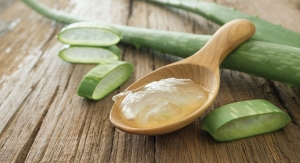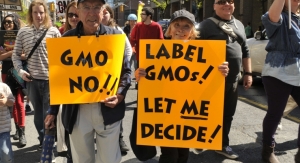11.29.16
Companies selling products in California containing "Aloe vera, non-decolorized whole leaf extract" and "goldenseal root powder" must provide a "clear and reasonable warning" compliant with the requirements of Proposition 65 (Prop 65), unless otherwise exempted, beginning Dec. 4, 2016. The American Herbal Products Association (AHPA) has issued guidance for companies regarding the listing of these substances under Prop 65.
Prop 65 provides an exception for chemicals that are "naturally occurring" in foods and in other consumer products prepared with food ingredients, such as cosmetics. The California Office of Environmental Health Hazard Assessment's (OEHHA's) regulations state that an exposure to a Prop 65 listed chemical does not occur (no warning is required) under the following conditions:
For a food, when the chemical is naturally occurring in the food and is a natural constituent of the food;
For a consumer product other than food, when the chemical is a naturally occurring chemical in food, and the food was used in the manufacture, production, or processing of the consumer product.
The recognition by OEHHA that these ingredients are "natural constituents" of their botanical sources may suggest that the "naturally occurring" exemption will apply to products that contain Aloe vera, non-decolorized whole leaf extract or goldenseal root powder.
However, 60-day notices have been brought against several marketers of pennyroyal oil by one private plaintiff due to absence of warnings for the naturally-occurring presence of pulegone, another substance listed as a carcinogen. On the other hand, it may be unlikely that any plaintiff will identify the aloe listing as relevant to products that contain Aloe vera whole leaf extract that has been decolorized and that is accurately labeled as such, or is accurately labeled as one of the aloe ingredients that is not included, as specified in the April 2015 notice of intent to list.
On Dec. 4, 2015, OEHHA added Aloe vera, non-decolorized whole leaf extract and goldenseal root powder to its list of "chemicals known to the State of California to cause cancer" for purposes of the state's Proposition 65. This action follows on OEHHA's April 2015 notice of intent to list these substances under its so-called "Labor Code listing mechanism." In both the April proposal and the formal notice of listing, OEHHA identified these substances as "natural constituents" of the Aloe vera plant (syn. A. barbadensis) and the goldenseal plant (Hydrastis canadensis), respectively.
When a new substance is added to this Proposition 65 list, companies that market products that represent an "exposure" to the substance generally have one year in which to either reformulate products or provide a "clear and reasonable warning" for each such product, unless otherwise exempted. Thus, currently marketed products that contain these ingredients may be required to include these warnings on Dec. 4, unless otherwise exempted.
AHPA has actively opposed OEHHA's listing of these ingredients and was successful in modifying the aloe listing to specify "non-decolorized" in the definition of the ingredient that was added to the list. AHPA comments also, among other details, opposed OEHHA's use of the so-called Labor Code listing mechanism; requested that the listings, if adopted, be relevant only to oral routes of exposure since the purported bases of the listings were oral administration in rodents; and asserted that there should be no listing of goldenseal based only on a single carcinoma as observed in one test animal fed goldenseal root powder at a dosage of 2.5 percent of the animal's diet over nearly its entire lifetime.
Prop 65 provides an exception for chemicals that are "naturally occurring" in foods and in other consumer products prepared with food ingredients, such as cosmetics. The California Office of Environmental Health Hazard Assessment's (OEHHA's) regulations state that an exposure to a Prop 65 listed chemical does not occur (no warning is required) under the following conditions:
For a food, when the chemical is naturally occurring in the food and is a natural constituent of the food;
For a consumer product other than food, when the chemical is a naturally occurring chemical in food, and the food was used in the manufacture, production, or processing of the consumer product.
The recognition by OEHHA that these ingredients are "natural constituents" of their botanical sources may suggest that the "naturally occurring" exemption will apply to products that contain Aloe vera, non-decolorized whole leaf extract or goldenseal root powder.
However, 60-day notices have been brought against several marketers of pennyroyal oil by one private plaintiff due to absence of warnings for the naturally-occurring presence of pulegone, another substance listed as a carcinogen. On the other hand, it may be unlikely that any plaintiff will identify the aloe listing as relevant to products that contain Aloe vera whole leaf extract that has been decolorized and that is accurately labeled as such, or is accurately labeled as one of the aloe ingredients that is not included, as specified in the April 2015 notice of intent to list.
On Dec. 4, 2015, OEHHA added Aloe vera, non-decolorized whole leaf extract and goldenseal root powder to its list of "chemicals known to the State of California to cause cancer" for purposes of the state's Proposition 65. This action follows on OEHHA's April 2015 notice of intent to list these substances under its so-called "Labor Code listing mechanism." In both the April proposal and the formal notice of listing, OEHHA identified these substances as "natural constituents" of the Aloe vera plant (syn. A. barbadensis) and the goldenseal plant (Hydrastis canadensis), respectively.
When a new substance is added to this Proposition 65 list, companies that market products that represent an "exposure" to the substance generally have one year in which to either reformulate products or provide a "clear and reasonable warning" for each such product, unless otherwise exempted. Thus, currently marketed products that contain these ingredients may be required to include these warnings on Dec. 4, unless otherwise exempted.
AHPA has actively opposed OEHHA's listing of these ingredients and was successful in modifying the aloe listing to specify "non-decolorized" in the definition of the ingredient that was added to the list. AHPA comments also, among other details, opposed OEHHA's use of the so-called Labor Code listing mechanism; requested that the listings, if adopted, be relevant only to oral routes of exposure since the purported bases of the listings were oral administration in rodents; and asserted that there should be no listing of goldenseal based only on a single carcinoma as observed in one test animal fed goldenseal root powder at a dosage of 2.5 percent of the animal's diet over nearly its entire lifetime.
















